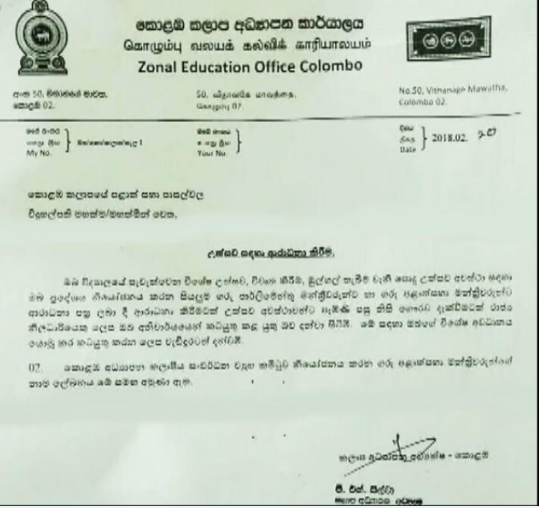News
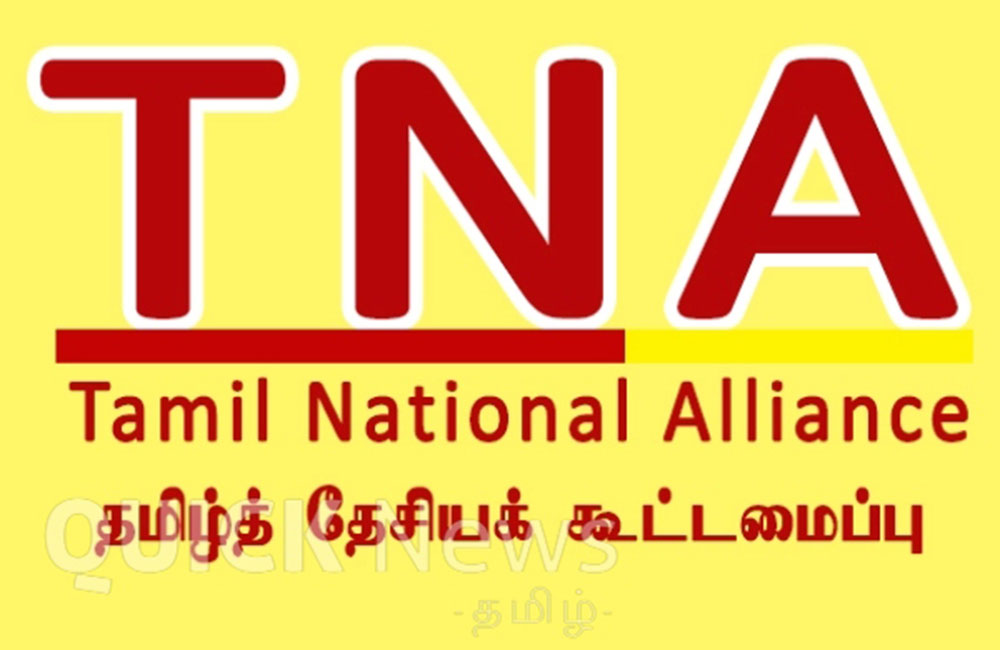
TNA will not support no-confidence motion
Tamil National Alliance (TNA) will not support the no-confidence motion party insiders said. According to sources, the party has decided to not support the Joint Opposition in the no-confidence motion against Prime Minister Ranil Wickramasinghe.
However, the TNA official was recently quoted as saying it would take a decision regarding the no-confidence motion against Prime Minister Ranil Wickremesinghe only on April 2 during their parliamentary group meeting.
Meanwhile Jathika Hela Urumaya (JHU) General Secretary and Minister, Patali Champika Ranawaka has said his party too will not support the no-confidence motion against Prime Minister Ranil Wickremesinghe submitted by a group involved in serious financial crimes much worse than the Central Bank bond scam.
He told a news conference that the government had carried out a proper investigation into the scam and brought the culprits to book.
“We have been of the view from the very beginning that the culprits involved in the bond scam should be brought to book. The bond scam had not only caused direct loss to the government but has also resulted in an economic crisis due to the increase in interest rates. The government appointed a PCoI on the matter and arrested those implicated. The government has taken proper action over the matter unlike during the Rajapaksa regime," the minister said.
He said the no-confidence motion was presented by a group involved in serious financial crimes such as MIG deal, which caused a US$6.8 million loss to the State.
“These frauds are worse than the CB bond scam. So we are not supporting a no-confidence motion brought in by such people,’ he said and added that there should be immediate reforms in the government and in the UNP, he said.
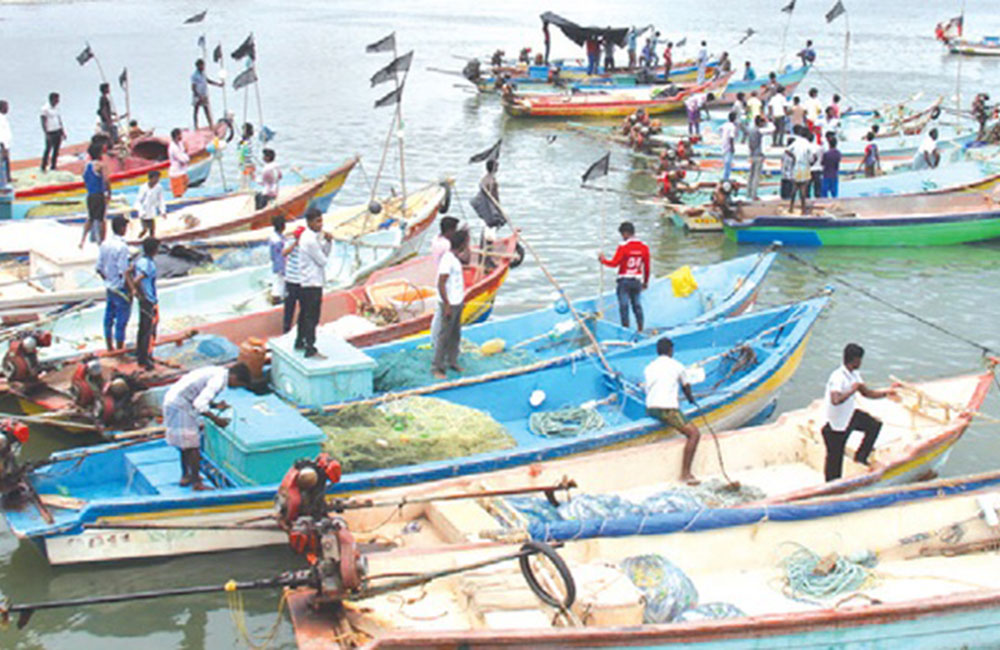
2000 Indian fishermen poaching in Lankan waters sent back
The Sri Lankan Navy has sent back more than 2000 Tamil Nadu fishermen who were fishing illegally in Sri Lanka's territorial waters on Sunday. The fishermen, however, have accused the Navy of snapping their fishing nets.
Detention of Indian fishermen by Lankan authorities is frequent, as they often cross the International Maritime Boundary Line for fishing in its waters. On March 3, over 2,500 fishermen from Rameswaram were allegedly sent back by the Lankan Navy while they were fishing near Katchatheevu.
Sri Lanka has long fumed over poaching and illegal fishing by Indian fishermen stating that it depletes the catch of its own fishermen.
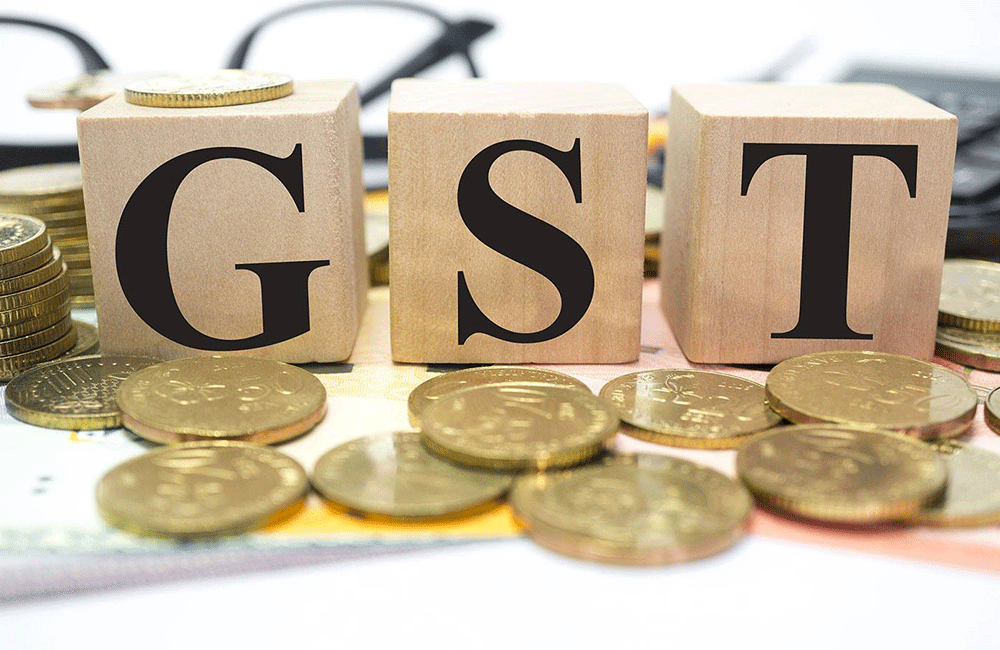
High Commission of India organizes Workshop on GST Goods & Services Tax
At the request of Government of Sri Lanka, High Commission of India organized an awareness workshop in Taj Samudra, Colombo on Goods and Service Tax (GST) on 23 March 2018. A three-member delegation from Central Board of Excise and Customs (CBEC), Government of India headed by Commissioner Mr. Upendra Gupta conducted the workshop. Ms. Sonali Wijeratne, Director General, Department of Commerce, Government of Sri Lanka and Mr. Arindam Bagchi, Deputy High Commissioner of India were also present. Several officials from various Ministries/Departments of Sri Lanka, representatives of the trade chambers, members from the industry etc. were also present. The discussions highlighted the fact that Sri Lankan exporters will now have access to hitherto unexplored markets of various states(provinces) in India, thanks to uniform rates of taxation all over India under the new GST Act.
Launched in July 2017, GST is hailed as India’s biggest tax reform since independence. GST has resulted in economic integration of India, by subsuming more than a dozen State and Central levies into one tax. GST has unified 29 states of India into a common national market for the first time. [One nation, One tax]. GST has also substantially increased ease of doing business in India. GST has mitigated cascading effects in taxation as well as ensured transparency, certainty and simplicity.
The new GST system will bring down the cost of imports and exports for Sri Lanka from/to India. The traders based in Sri Lanka will not have to bear the cost of any indirect tax except the basic customs duty and Social Welfare Surcharge, as applicable. Traders in India can now claim GST paid on imported goods as tax credit from Government of India.
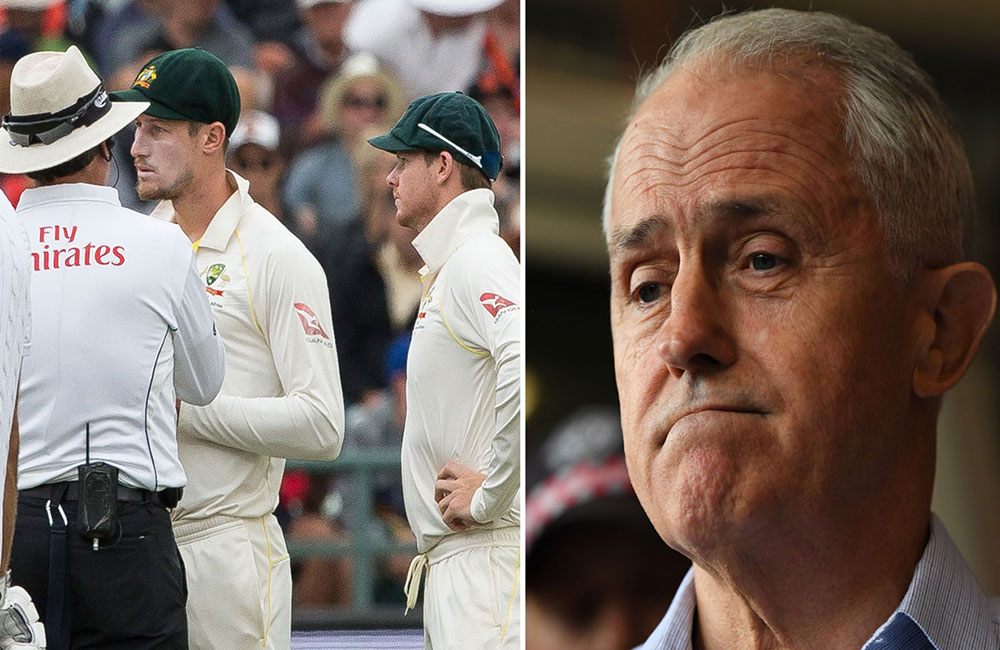
Aussie Prime Minister says ball-tampering 'beyond belief'
Australia’s ball-tampering crisis in their Test series in SA hit the national conversation on Sunday when Prime Minister Malcolm Turnbull laid into Steve Smith’s side.
"It seemed completely beyond belief that the Australian cricket team had been involved in cheating," Turnbull was quoted as saying by the Melbourne Age.
"After all, our cricketers are role models and cricket is synonymous with fair play.
"How can our team be engaged in cheating like this? It beggars belief."
Smith admitted on Saturday that he and the rest of what he called Australia’s "leadership group" had roped Cameron Bancroft, the most junior member of the team, who is playing his eighth Test, into a plan to try to roughen the ball by rubbing it with sticking tape loaded with sand taken from the pitch. Smith and Bancroft confessed after the latter was caught redhanded by television cameras before tea on day three of the third Test at Newlands on Saturday.

Cameras showed Bancroft with a yellow object in his hand.
On Sunday, Smith and vice-captain David Warner stepped down from their positions for the rest of the Newlands Test. The captaincy was passed to wicketkeeper Tim Paine, who is playing his 12th Test. Smith has been fined his whole match fee and banned for the Wanderers Test, which starts on Friday. Bancroft has been hit with a 75% fine and three demerit points — one short of a ban.
Turnbull had what he called a "frank discussion" with Cricket Australia (CA) chairman David Peever. "I have expressed to him very clearly and unequivocally my disappointment and my concern about the events in SA," Turnbull said.
"He has said to me that CA will be responding decisively, as they should. It’s their responsibility to deal with it, but I have to say that for the whole nation — who holds those who wear the baggy green up on a pedestal about as high as you can get in Australia — this is a shocking disappointment.
"It’s wrong and I look forward to CA taking decisive action soon."
CA CE James Sutherland said in Melbourne on Sunday that Australian cricket fans "have every reason to wake up and not be proud of the Australian team. It’s a sad day for Australian cricket.
"Activities on the field yesterday in Cape Town are neither within the laws of the game or within the spirit of the game."
CA has tasked its head of integrity, Iain Roy, and team performance manager Pat Howard with coming to SA to lead their investigation. Roy and Howard were instrumental in the sacking of Mickey Arthur as Australia’s coach before the 2013 Ashes. "We have a responsibility to take this further and to understand more about the issue," Sutherland said.
"We need someone to go over there and talk to the relevant people and understand the detail and then we’ll make appropriate decisions on the next steps.
"We are in the middle of a game and that game needs to conclude but in the course of the next couple of days we’ll get to the bottom of this." SA’s team manager, Mohammed Moosajee, described the series as "intriguing on the field but somewhat theatrical off the field".
The International Cricket Council has yet to say what it will do about the case.
Moosajee said the Australians had followed a sensible course of action after being exposed as cheats.
"I can’t really talk for them, but when the evidence is as damning as it was, it’s sometimes better just to come clean," he said.
"That’s probably what they were thinking," Moosajee said.
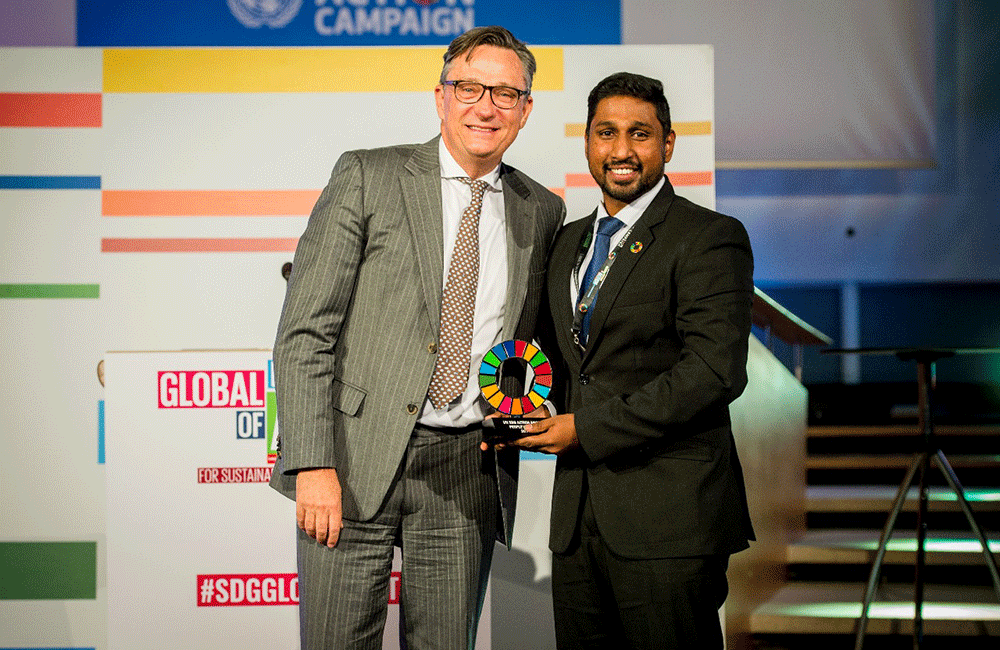
SL youth organisation bags UN SDG Award
The Road to Rights, a Sri Lankan youth led organisation founded in 2009, was awarded the “Peoples Choice Award for the year 2018” at the Global Festival of Action for Sustainable Development, organized by the United Nations Sustainable Development Goals (SDG) Action Campaign.
The Global Festival of Action for Sustainable Development is an international gathering which aims to catalyze action on the UN SDGs worldwide. The competition saw the participation of over 700 organizations worldwide representing different countries and different fields of action.
The core principals of the Road to Rights form around the concept of creating awareness on human rights and the 2030 agenda thus empowering youth and creating a community which shares love and values interpersonal respect.
For the past 9 years, The Road to Rights has launched many successful campaigns island wide such as “Purposeful Play”, “Senses and souls”, iLead, YouthVote, human rights friendly cities, Rock the city, and Green girls.
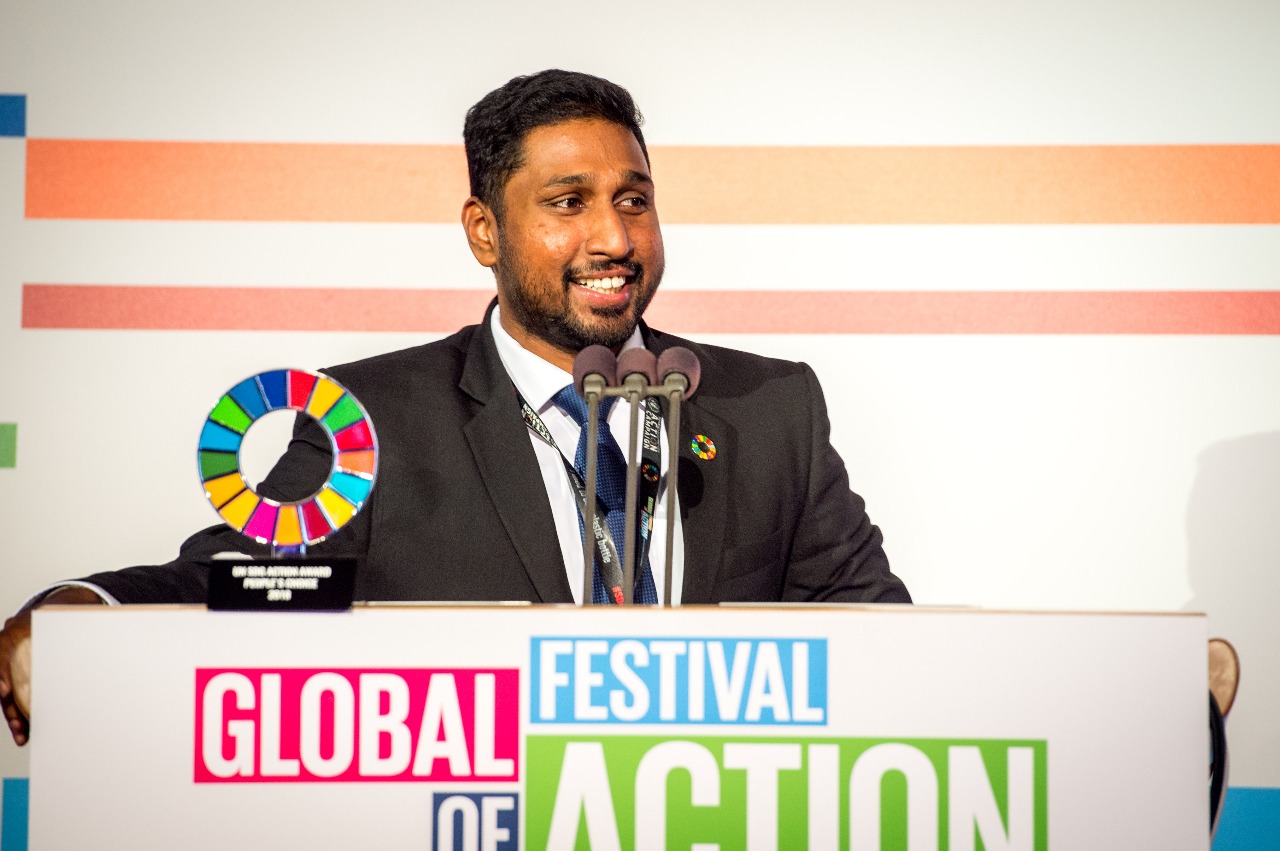
“Remember this, we are the last generation to act on climate change. The world is in our hands, so let’s act together” – Ashan Perera at the award ceremony in Germany.
Ashan Perera began volunteering when he was just 8 years old and the organisation is the fruition of one boy's passionate dream to serve marginalized groups and members of society. Despite facing many obstacles and challenges, he has been able to create a youth led organisation that involves and inspires many young individuals in Sri Lanka while extending the reach of the 'Road to Rights' to 18 countries across the globe.

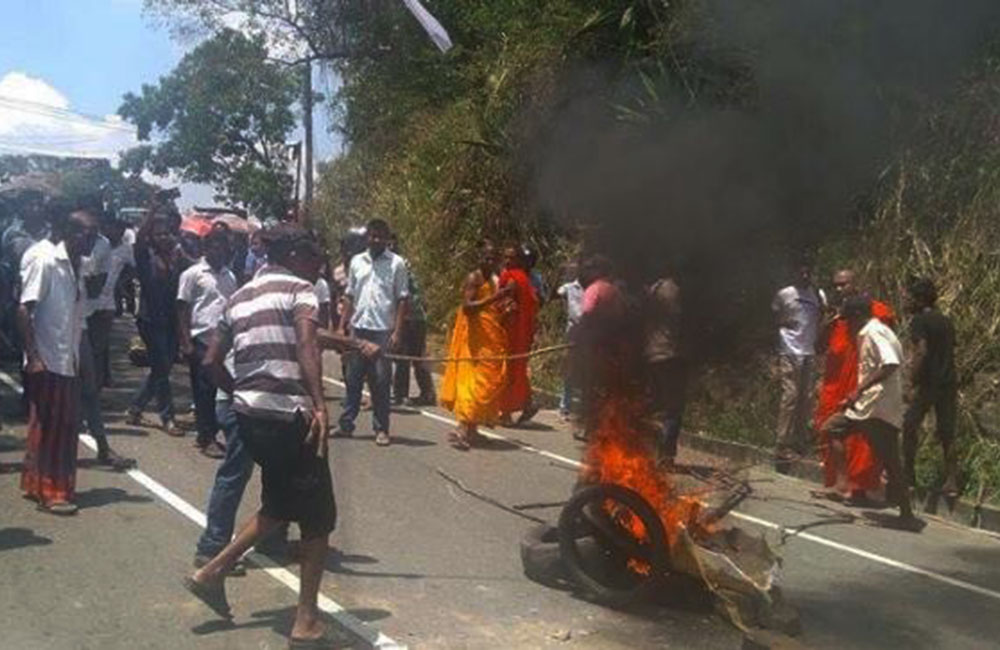
Politicians accused of joining Sri Lanka anti-Muslim riots
Police and politicians backed by the country's former strongman president Mahinda Rajapaksa joined anti-Muslim riots that rocked Sri Lanka's Kandy district this month, according to witnesses, officials and closed-circuit television (CCTV) footage.
Scores of Muslim mosques, homes and businesses were destroyed as mobs ran amok for three days in Kandy, the central highlands district previously known for its diversity and tolerance.
The government declared a state of emergency and blocked social media platforms for a week to control the unrest. It was the first state of emergency imposed in Sri Lanka since the end of a decades-long Tamil separatist war in 2009.
The role of police and some local Buddhist politicians suggests the Sri Lankan government lost control of elements of its security forces, and that the violence was more than a spontaneous outbreak fuelled by fringe Buddhist extremists and hate-speech spread on social media.
Mr Rajapaksa has denied that he or other leaders of his party were involved. Police said the allegations against officers and politicians were being investigated.
Victims and witnesses, whose accounts were partly backed by CCTV footage, described members of an elite paramilitary police unit, the Special Task Force (STF), assaulting a Muslim cleric and leaders. Local STF commanders declined to comment.
"They came to attack," said Mr A.H. Ramees, a cleric at a mosque where worshippers say they were beaten by police who were supposed to be protecting them.
"They were shouting. There was filthy language. They said all the problems were because of us, that we were like terrorists."
Mr Ruwan Gunasekera, a spokesman for the national police force, including the STF, said a special investigation unit was "probing the deficiencies of the police in the incident". A second unit was examining the role of political actors, he said.
The riots were the latest example of rising Buddhist nationalism and anti-Muslim sentiment in the region and have unnerved Sri Lanka's multi-ethnic coalition government, which ousted Mr Rajapaksa in an election in 2015, according to analysts and two sources familiar with the government's deliberations.
Buddhists make up about 70 per cent of Sri Lanka's 21 million people. Hindus account for around 13 per cent, while Muslims make up about 9 per cent of the population.
Sri Lanka's Law and Order Minister Ranjith Madduma Bandara has said the violence in Kandy was "well organised" and pointed the finger at members of Sri Lanka Podujana Peramuna (SLPP), a political party backed by Mr Rajapaksa that scored a huge victory in local elections last month.
Flanked by senior leaders at a press conference earlier this month, Mr Rajapaksa said the accusations were politically motivated and the government instigated the violence to "get the Muslim vote" and to distract from its inadequacies.
The violence in Kandy was triggered by an attack on a Buddhist truck driver by four Muslim men after a traffic dispute on Feb 22.
As he lay in a coma, calls for retribution and anti-Islam polemics flooded social media and the government ordered the deployment of the STF. Rioting erupted after his funeral 11 days later.
An excerpt of CCTV footage from the first day of attacks showed police letting a large group of men through the cordon protecting the Noor Jummah mosque in Digana, a Kandy township.
The men rush into a multi-storey building opposite the mosque. A local SLPP politician, Mr Samantha Perera, can be seen pointing at the higher floors of the building.
Mr Perera confirmed he was the person shown in the footage. He said he was trying to calm the rioters and only found out later the mosque had been attacked.
Cabinet spokesman Rajitha Senaratne said Mr Perera was under investigation for "attacking Muslim-owned shops and mosques with stones". At least three other SLPP politicians were being investigated and another SLPP councillor has been arrested for setting fire to a mosque, he said. All deny any involvement in the violence.
REUTERS

Chinese national smuggling gems worth over Rs. 20 million arrested at airport
Sri Lanka Customs officials at the Colombo International Airport in Katunayake early this morning have arrested a Chinese national when he attempted to illegally smuggle a stock of gems worth over Rs 20 million into the country.
The 39-year-old Chinese man has arrived at the Bandaranaike International Airport on a Cathay Pacific flight from Shanghai around 11:25 last night.
The customs officials have found 12 cut and polished precious stones each packed in a small box in his hand luggage.
The stock of gems containing sapphires, cat's eyes, star stones, and rubies weighed 68.87 carats and worth Rs. 21.1 million, according to the Customs.
Further investigations are being carried out on the instructions of Customs Director O.M. Jabeer.
Source : Colombo Page
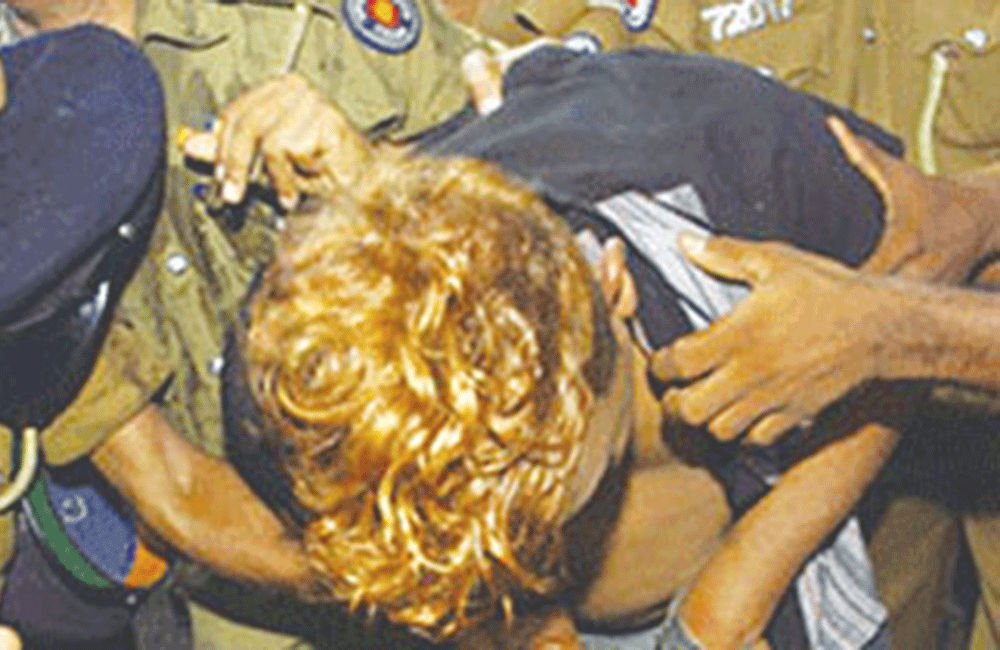
Kudu Nuwan arrested by STF
Nuwan Udaya Gunathilaka alias ‘Kudu’ Nuwan has been arrested with a hand grenade, in Kadawatha by the Special Task Force (STF) today.
‘Kudu’ Nuwan was a suspect in the attack on the Sri Lanka Rupavahini Corporation (SLRC) on December 27, 2007.
The STF said that there were cases pending against him for murder, sexual assaults, extortion, drug peddling and underworld activities.
The 39-year-old suspect was handed over to the Kadawatha Police. He was produced in the Mahara Magistrate’s Court.
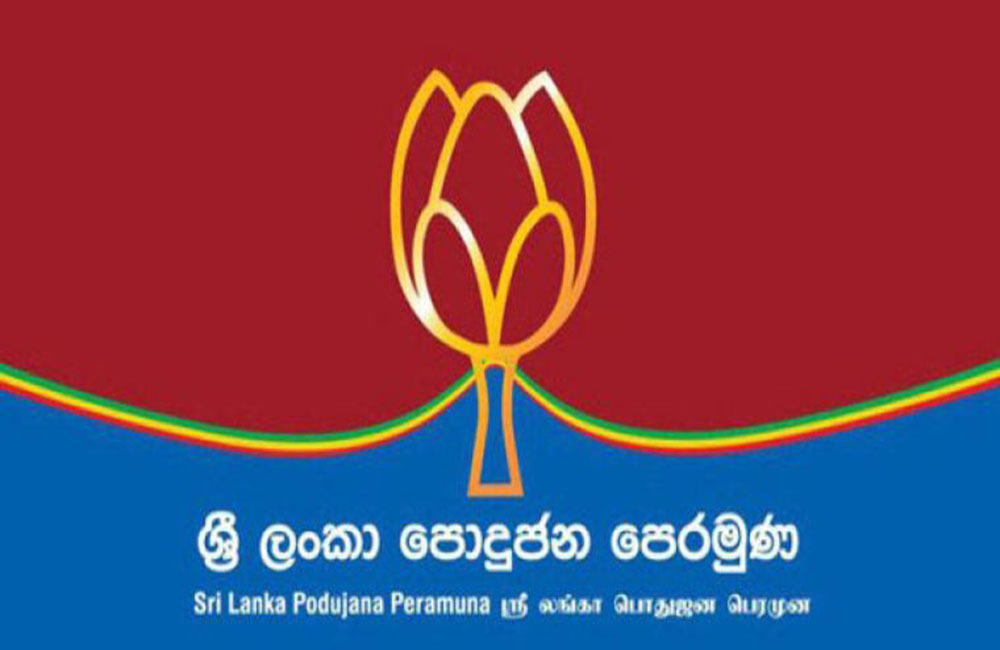
SLPP’s Stanley Dias elected as Dehiwala-Mount Lavinia Mayor
Sri Lanka Podujana Peramuna (SLPP) member Nawalage Stanley Dias was elected as the Mayor of the Dehiwala-Mount Lavinia Municipal Council this morning.
He received 23 votes while UNP mayoral candidate Sunethra Ranasinghe received 21 votes.
Kirthi Udawatte of SLFP was elected as the Deputy Mayor with 25 votes.
Four members of the JVP abstained from voting
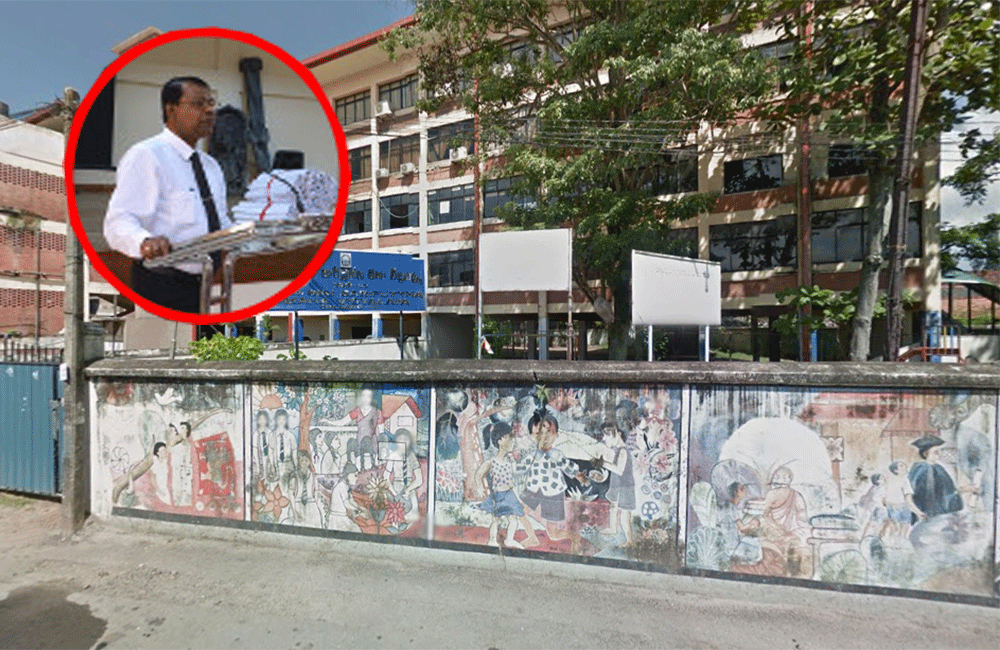
Colombo Zonal Education office letter ordering Principals to give due respect to Politicians causes social media stir
A letter from the Colombo Zonal Education office requesting Principals of Colombo schools to give due respect for Parliamentarians and PC members who attend to special school functions has caused a social media stir.
In a letter dated February 20 which is now being shared online had been sent to all schools within the territory of Colombo Zonal Division, Zonal Education, Director P.N. Silva had ordered the principals to invite Parliamentarians and PC members, who represented the area to special school functions and principals were bound to give Members of Parliament due respect when they attended such events.
Attached to the letter was a list of Provincial Council (PC) members, who represented Colombo Zonal Education Development Structural Committee.
Ceylon Teachers Union (CTU) General Secretary Joseph Stalin was quoted as saying that the move was an insult to the Principals.
“By ordering school Principals to respect politicians, the Colombo Zonal Education office had risked the State officials’ dignity and respect. With such move schools could be entirely politicized,” he said.
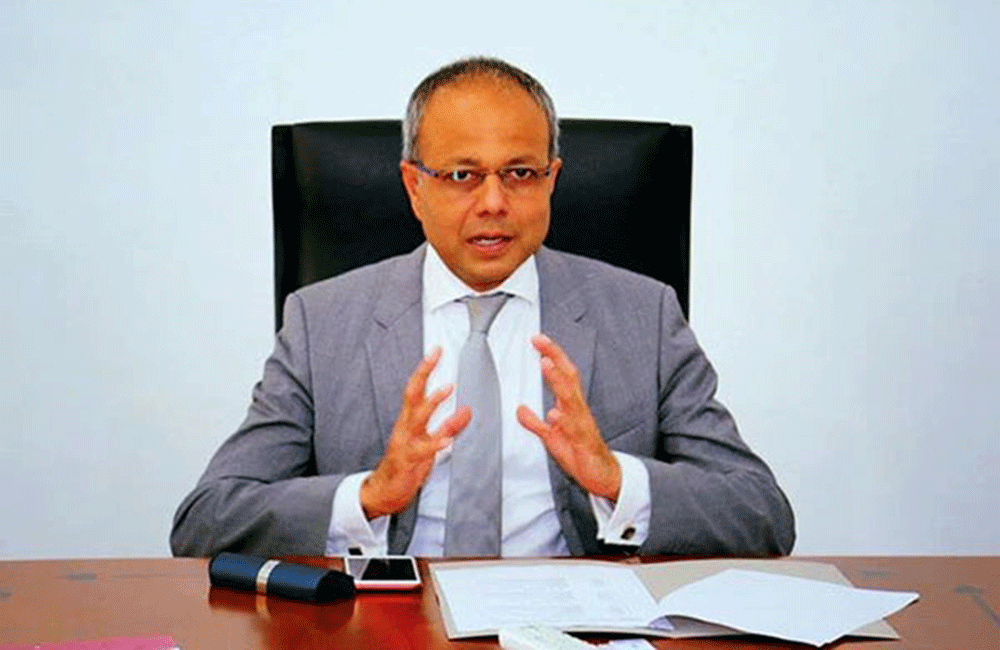
'Over 55,000 development projects launched in three years with zero propaganda' : Sagala
Project Management, Youth Affairs and Southern Development Minister Sagala Ratnayaka said the government, over the past three years, has launched over 55,000 development projects in various part of the country and it has spent over Rs. 1 million on each project.
"It's tragic that we have failed to communicate this effectively to the public. Development communication must be at the heart of the government propaganda," Ratnayaka said today (26), addressing a meeting on developing infrastructure in rural areas.
Home Affairs Minister Vajira Abeywardena, Prime Minister's Secretary Saman Ekanayake, Secretary of the Ministry of Media and Finance Dr. R. H.S. Samaratunga, Secretary to the Ministry of Project Management, Youth Affairs and Southern Development Gamini Seneviratne and Additional Secretary to the Prime Minister Saman Athaudahetti were also present at the meeting.
"There is a dire need for a comprehensive campaign on what we have done for the public. The people at the grassroots level are unaware of the crucial decisions made at the top level. These issues need to be corrected. One would say it's too late now, but we must understand the importance of these corrective measures," he added.
"Development alone is not enough to stay on top of our game. The due value should be given to communication as well," Ratyanaya said, adding that immediate measures have to be adopted to fill this 'communication-gap'.
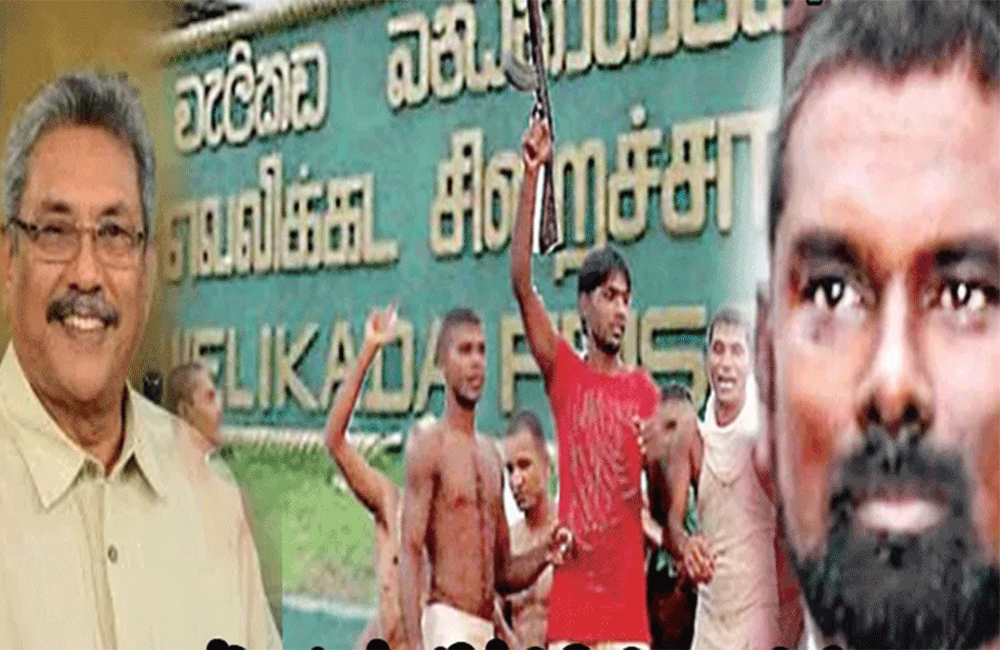
Rangajeewa being protected : Justice will not prevail!
It is reported that IP of the Police Narcotics Bureau who is accused of being connected to assassinating the inmates of the Welikada Prison is not being arreste Neomal Rangajeewa due to political interference.
When the incident occurred at the Welikada Prison, Rangajeewa who was accompanied by a group of security personnel had selected prisoners to get rid of while they were said to be having a prepared list at hand as proven at the hearings of the Committee appointed in 2015 to investigate the Welikada Prison incident.
However, the Defense Secretary Gotabaya Rajapaksa was also accused of issuing orders for the killings..
While there are many accusations against Rajapaksa such as that of relating to the MiG deal, assassination of Lasantha Wickrematunga, the shootings by the Army in Rathupaswala and the financial monument by constructing the Rajapakse monument however there appears to be no proper investigation.
Political Deal!
According to reliable sources, government parties with have made a deal with Gotabaya which is preventing investigations while police inspector Rangajeewa is being protected according to the same political deal.
Powerful government intervention!
Rajapaksa also continues to file fundamental rights petitions preventing legal action being taken against him while it is said he is being protected through a powerful government intervention.
Nothing will happen till 2019!
Police Inspector Rangajeewa is said to have already filed a petition before the Supreme Court asking for the prevention of his arrest and reliable sources say that the Supreme Court will decide accordingly.
Accordingly, due to the current political deals if is unlikely that regard to the corruption of the government in the past will be looked at It is also reported that the law will not take action regard to the killings of the same period.
Page 470 of 526
